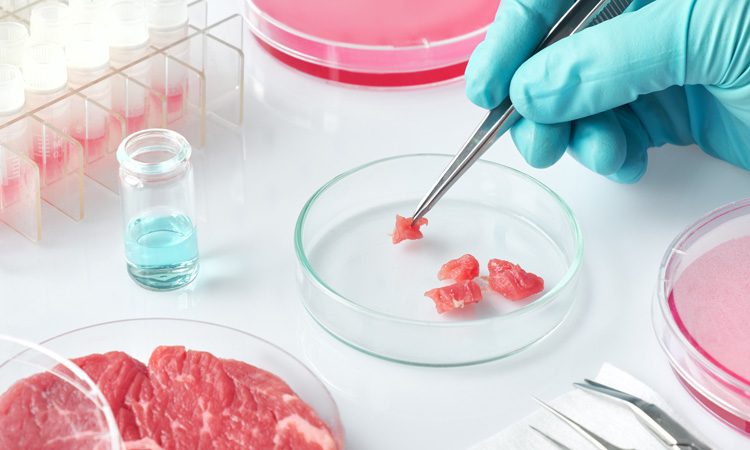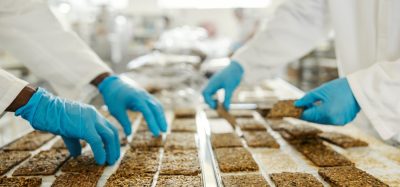Study finds myoglobin enhances cultured meat growth, colour and texture
- Like
- Digg
- Del
- Tumblr
- VKontakte
- Buffer
- Love This
- Odnoklassniki
- Meneame
- Blogger
- Amazon
- Yahoo Mail
- Gmail
- AOL
- Newsvine
- HackerNews
- Evernote
- MySpace
- Mail.ru
- Viadeo
- Line
- Comments
- Yummly
- SMS
- Viber
- Telegram
- Subscribe
- Skype
- Facebook Messenger
- Kakao
- LiveJournal
- Yammer
- Edgar
- Fintel
- Mix
- Instapaper
- Copy Link
Posted: 1 November 2019 | Sam Mehmet (New Food) | No comments yet
Researchers, led by Tufts University, have found that myoglobin increases the proliferation and metabolic activity of bovine muscle satellite cells, as well as creates texture and colour more comparable to beef.


Researchers from Tufts University have explored the development of cultured meat and found that the addition of myoglobin enhances the growth, texture and colour of bovine muscle grown from cells in culture.
The researchers found that myoglobin increased the proliferation and metabolic activity of bovine muscle satellite cells and the addition of either myoglobin or haemoglobin also led to a change of colour considered more comparable to beef.
“Taste, colour and texture will be critical to consumer acceptance of cultured meat,” said David Kaplan, Stern Family Professor of Engineering at the Tufts University School of Engineering and corresponding author of the study. “If our goal is to make something similar to a steak, we need to find the right conditions for cells to grow that replicate the formation of natural muscle. The addition of myoglobin looks to be one more important addition to the recipe that brings us closer to that goal.”
Meat substitutes currently available, such as the Impossible Burger, use heme proteins from soy, which is said to make the product more meat-like in appearance and taste. The Tufts research team predicted that adding heme proteins to meat cell culture could not only have a similar effect, but could also improve the growth of muscle cells which require the heme proteins to thrive.
As heme proteins, myoglobin and haemoglobin both carry iron atoms that are responsible for the natural bloody, slightly ‘metallic’ taste of beef. The researchers found that adding haemoglobin or myoglobin changes the colour of the bioartificial muscle to a deeper reddish-brown. Myoglobin, however, was considered much better for promoting cell proliferation and differentiation of the BSCs to mature muscle cells, and better at helping the cells form fibres and adding a rich meat-like colour.
“We knew that myoglobin has an important role to play in muscle growth, as it is one of the most abundant proteins in muscle cells,” said first author of the study Robin Simsa, an industrial PhD student from Europe who conducted the studies during his fellowship stay at the Tufts University School of Engineering. “It is possible that myoglobin is bringing oxygen to the cell’s mitochondria, boosting their energy and helping them to proliferate. More than just an ingredient for colour, iron content and potentially flavour, myoglobin could also be an important element in the scaled-up production of cell-based meat to increase cell yield.”
The research was published in FOODS.









